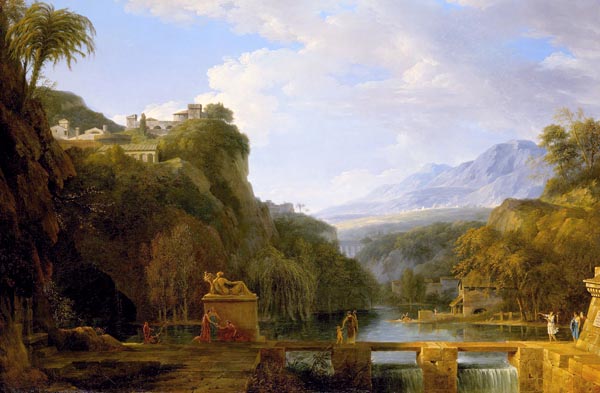George Theodoridis
Translations from Aeschylus, Aristophanes, Euripides, Menander and Sophocles

Landscape Of Ancient Greece (1786)
Pierre-Henri de Valenciennes (French, 1750 - 1819) - Artvee
Poetry in Translation sincerely thank George Theodoridis for his generosity in allowing us to feature his English translations of the Greek plays over many years.
Whilst his translations are no longer available here, they remain accessible via his personal website:
Visit Bacchic Stage
Previously Hosted Translations:
Aeschylus: Agamemnon, Choephoroi (The Libation Bearers), Eumenides, Persians, Seven Against Thebes, The Suppliant Maidens and Prometheus Bound.
Aristophanes: Clouds, Frogs, Birds, Lysistrata, Women In Parliament, Women at the Festival, Peace, Knights, Wasps, Wealth and Acharnians.
Euripides: Bacchae, Alcestis, Andromache, Suppliant Women, Iphigeneia in Aulis, Iphigeneia in Tauris, Elektra, Hekabe, Medea, Herakleidae, Herakles, Hippolytus, Helen, Phoenician Women, Ion, Cyclops, Trojan Women, Orestes and Rhesus.
Menander: The Grouch.
Sophocles: Oedipus Rex, Oedipus at Colonus, Antigone, Philoktetes, Ajax, Women of Trachis and Elektra.